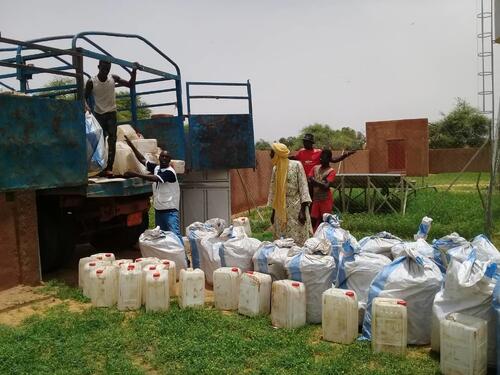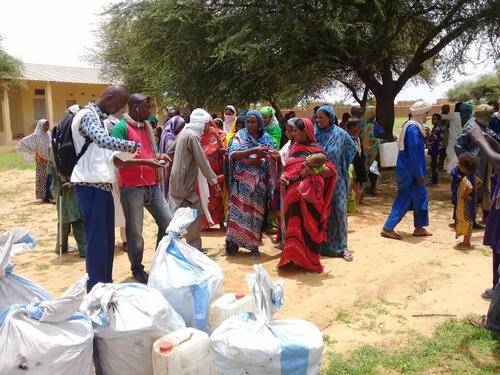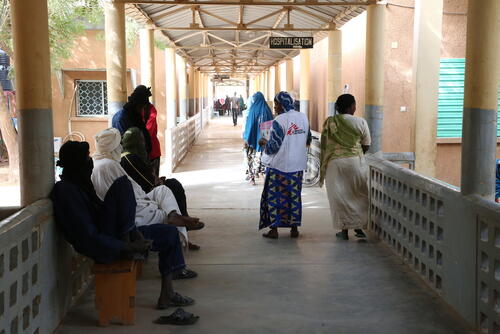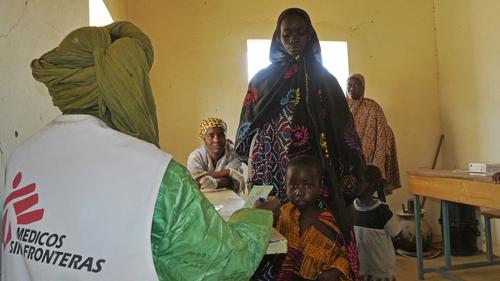MSF provides emergency medical care after an attack on Tindinbawen village
On 27 July, non-state armed groups attacked the village of Tindinbawen, Ansongo district, in northern Mali. Several people were killed and around 80 families were forced to flee to Tin Hama, a village located 80 kilometres away
“The people we met told us how the attackers stormed the village, burned houses and executed a number of men. People had no choice but to flee for safety in the surrounding villages,” said Rodrigue Nganaboy, MSF field coordinator in Ansongo.
According to their testimonies, pregnant women, children and the elderly had to walk the 80 kilometres to Tin Hama. “People arrived exhausted; they ran out of water and food and had to travel through the middle of a storm during their journey.”
An MSF team travelled to the village of Tin Hama to assess the immediate needs of the displaced people.
“When we first arrived, the living conditions were deplorable: access to water and food was limited, and people had no household or hygiene items,” Rodrigue explains.
“There were also no shelters or mosquito nets to protect them from the elements. None of the children were vaccinated and pregnant women hadn’t received any medical attention.” Apart from some food donated by the local community, displaced people in Tin Hama had little else.

Practical and psychological assistance
MSF and the Ministry of Health vaccinated 97 children against measles and other potentially deadly childhood diseases. “To prevent outbreaks of disease among the displaced people, we have prioritised a vaccination campaign to immunise children against the most dangerous diseases,” says Rodrigue.
An MSF mental health team has provided care to 103 people through the psycho-education activities.
People have been traumatised by what happened and don’t want to return to their village. “Three women who received individual mental health consultations told us how their husbands were executed by the attackers,” Rodrigue continues. “They were arrested, gathered together and killed on the spot.”
MSF has also distributed essential relief items including mosquito nets, mats, plates, clothes and pans to displaced families.
However, the need for food remains a real concern, and the risks of malnutrition will only increase if people cannot access food aid soon.
“These displaced people are relying on donations of food from the local community. But we believe this support won’t last, since the local people don’t have much themselves. We are concerned about the risk of malnutrition in the coming weeks,” says Rodrigue.
In Mali, MSF teams are working in the Kidal region and in the districts of Ansongo (Gao region), Koutiala (Sikasso region), and Ténenkou and Douentza (Mopti region), in particular strengthening the provision of maternal and paediatric healthcare.
In Ansongo, MSF has been supporting different departments in the town hospital since 2012. Teams provide outpatient consultations, emergency care and hospital admissions, surgery, maternal healthcare, chronic disease treatment, nutrition services, neonatology and paediatrics. In addition, victims of violence, including victims of sexual violence, are cared for and provided with psychological support. MSF provides referrals to community health centres and evacuates more serious cases to Gao hospital.
Moreover, between July and December, when nomadic groups migrate, MSF teams ensure they have access to healthcare by training community health workers to diagnose and treat the most common diseases.






